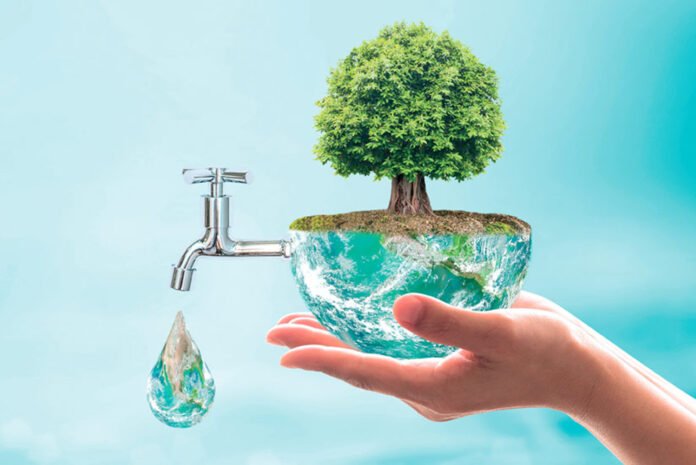The Earth’s climate is constantly changing in unpredictable and sometimes extreme ways. We have seen drastic temperature changes, hurricanes caused by rising ocean levels, droughts, and other forms of climate-induced devastation. It is essential to understand climate change and its impacts in order to better prepare for the future. By understanding the data, we can recognize the patterns and risks that come with the changing environment. In this article, we will delve into the science of climate change and its effects on our planet. With this knowledge, we may be able to begin to take steps to reduce its impact, and protect the Earth for future generations.
1. What is Climate Change?
Climate Change: A Cause for Expedition
Climate change is neither an impending nor an imminent threat, but an ongoing issue that plagues us. It is an environmental phenomenon that occurs over long periods of time, and the impacts of it are beginning to vary between geographical areas. The general consensus among international scientific communities is that the Earth is getting warmer. In the past century, the average global temperature has increased by almost 2 degrees Fahrenheit in comparison to the average from the past 2000 years.
Climate change is caused primarily by the release of greenhouse gases, such as carbon dioxide and methane, into the atmosphere. These gases act like a blanket, trapping heat from the sun and thereby causing the planet to warm. Scientists have also suggested other causes such as man-made global deforestation, the burning of Africa’s savanna grasslands, and the destruction of permafrost soils. The combination of these factors are significantly accelerating the rate of climate change.
The effects of this phenomenon will be felt across the world. Oceans will continue to rise, evoking more and more encroaching shorelines. Drought and wildfires will be more frequent, devastatingly impacting food crops and livestock alike. High-elevation glaciers across the poles will melt, potentially leading to flooding and hazardous mudslides. Extreme weather episodes, such as storms, tornados and hurricanes are becoming more common every year.
It is therefore necessary that we take drastic measures in order to reduce the intensity of the climate change.
We must move towards:
- Increasing reliance on renewable energy sources,
- Constructing carbon dioxide capture and storage facilities,
- Reducing the emission of methane generally,
- Practicing sustainable agricultural techniques,
- Decreasing vehicle and air travel emissions,
- Planning more green spaces and developing efficient transportation systems.
The onus is on us to better care for the environment. It is only with strong political will and global cooperation that we can rise to the challenge of tackling climate change and ensure a sustainable future for generations to come.
2. Examining the Impacts of Climate Change
Climate change is one of the most pressing issues of our time and its impacts will be felt across the world. It is important to understand the myriad of influences it can have, and how this can shape the future.
- It is becoming clearer that climate change will have an effect on global food production. This has been a cause for alarm in recent years as extreme weather events have caused a disruption of food supplies, leading to crop failure.
- Heavy rain or snow can lead to flooding, with potentially devastating effects. Floods can cause not only damage to properties and infrastructure, but can also lead to water pollution, disruption of services, and loss of life.
- Heatwaves are another of the consequences of climate change that needs to be addressed. Increased temperatures have resulted in increased deaths, and can have damaging effects on people’s health, particularly those of certain vulnerable groups.
- Another area to consider is sea-level rise, which is predicted to cause considerable disruption in coastal areas. This could lead to displacement of people, disruption of livelihoods, damage to habitats, and erosion of land.
It is vital that steps are taken to mitigate the impacts of climate change and to prepare adequately for its consequences. This means understanding the issues, their associated risks, and how best to respond to them. We must all take responsibility for the future and ensure that we are doing all that we can to reduce the negative effects of climate change.
3. Adapting to a Changing Climate
With the effects of climate change becoming increasingly apparent, it is important to understand how to best adapt to these changes. Here are some tips for helping society adjust to the drastically shifting landscape:
- Prioritize sustainability: By using renewable resources and making purposeful efforts to reduce the amount of emissions an organization expels into the atmosphere, a business can make an impactful difference in the fight against climate change.
- Invest in technology: By investing in clean energy sources, such as solar or wind, and adopting practices that support a more efficient use of resources, companies can reduce their carbon footprint and help mitigate the damages of the changing climate.
- Collaborate: Collaborating with like-minded organizations, across borders, to generate and develop new and innovative solutions to climate change is extremely important. Such collaborations can lead to the development of new technologies and strategies that can drastically reduce the emissions created in the production and use of energy.
Address Inequity: It’s important to recognize that climate change disproportionately affects those in lower socio-economic positions. Therefore, it is important to address this inequity by investing in programs that can reduce their vulnerability and help communities build the resiliency to better withstand the changing climate.
By utilizing these tactics and investing in technological advances, organizations can manage the impacts of a changing climate and help ensure the future sustainability of the planet.
4. Taking Action for the Future of Our Planet
The Earth doesn’t do us any favors. To keep it functioning, it needs a little love from all of us.Every little bit counts and taking action starts now. Here are a few suggestions:
- Switch off the lights: If you’re leaving a room, don’t forget to turn off the lights behind you. Cutting down on electricity usage helps conserve energy – and it saves money, too!
- Go vegetarian: Eating a plant-based diet is healthier for our bodies and better for the planet. Consider reducing your meat intake or going (at least one day a week) completely meat-free and eating a diet packed with fruits, vegetables, and grains.
- Recycle: Invest in a couple of recycling bins and label them clearly for paper, plastic, glass, etc. Make sure to recycle whatever you can! Your waste doesn’t have to sit in a landfill.
- Buy second-hand: Before buying something new, consider going for a second-hand option. Used items typically have less of an impact on the environment than brand new products.
From habits to big commitments, there are lots of things you can do right now. Try an energy audit for your home – install efficient lightbulbs, switch off unused appliances, and wear more warmer layers of clothing in winter. Making changes to our homes, lifestyle, and routines can be daunting but it makes a huge impact.
Stay informed and spread the word – the planet needs more people working towards a brighter and greener future. Let’s go!
As human-induced climate change continues to ravage the planet, leaving us with an ever-changing and unpredictable climate, it is more important than ever to continue educating ourselves and others on the impacts of climate change and how we can all work together to create a sustainable future.


